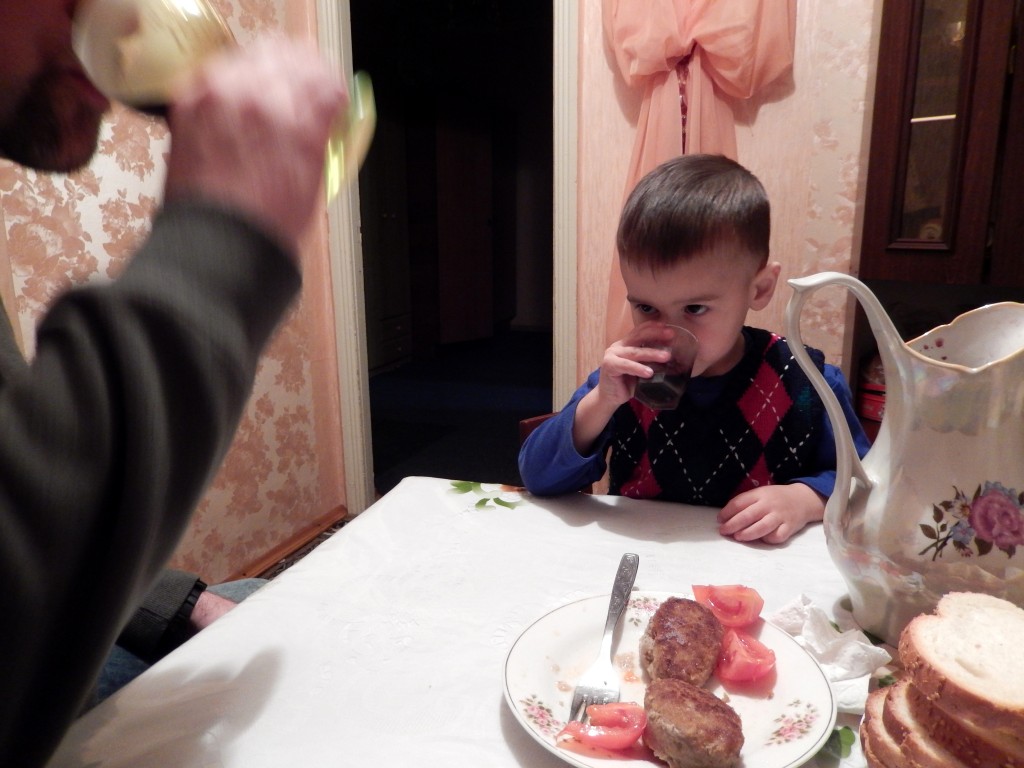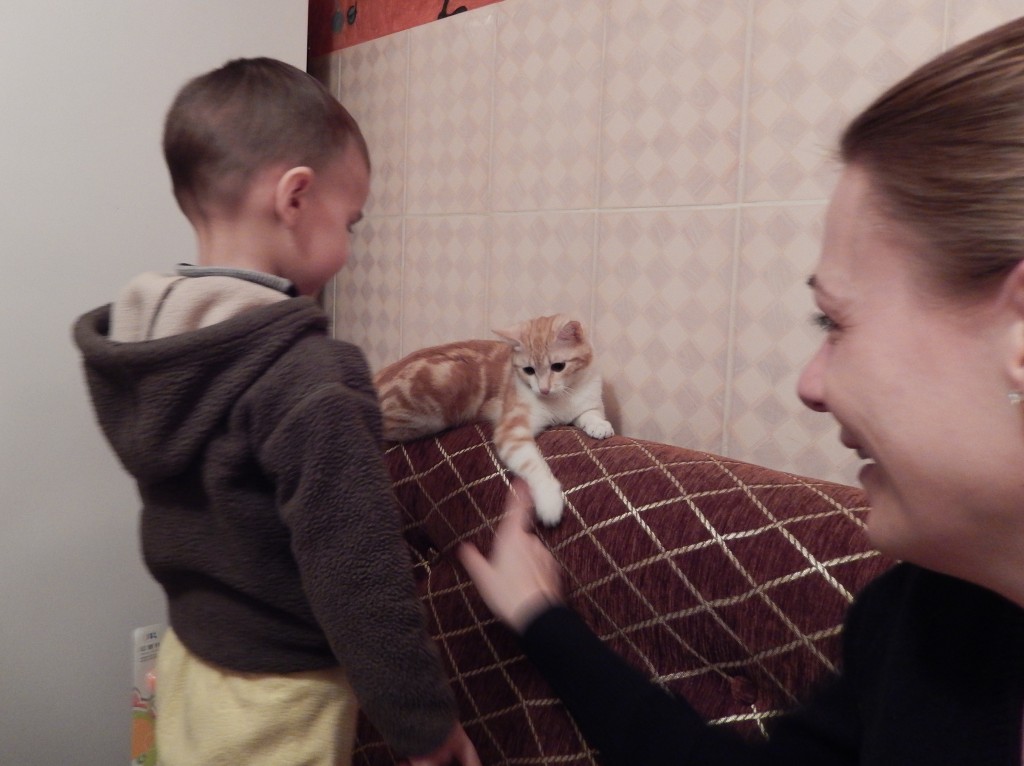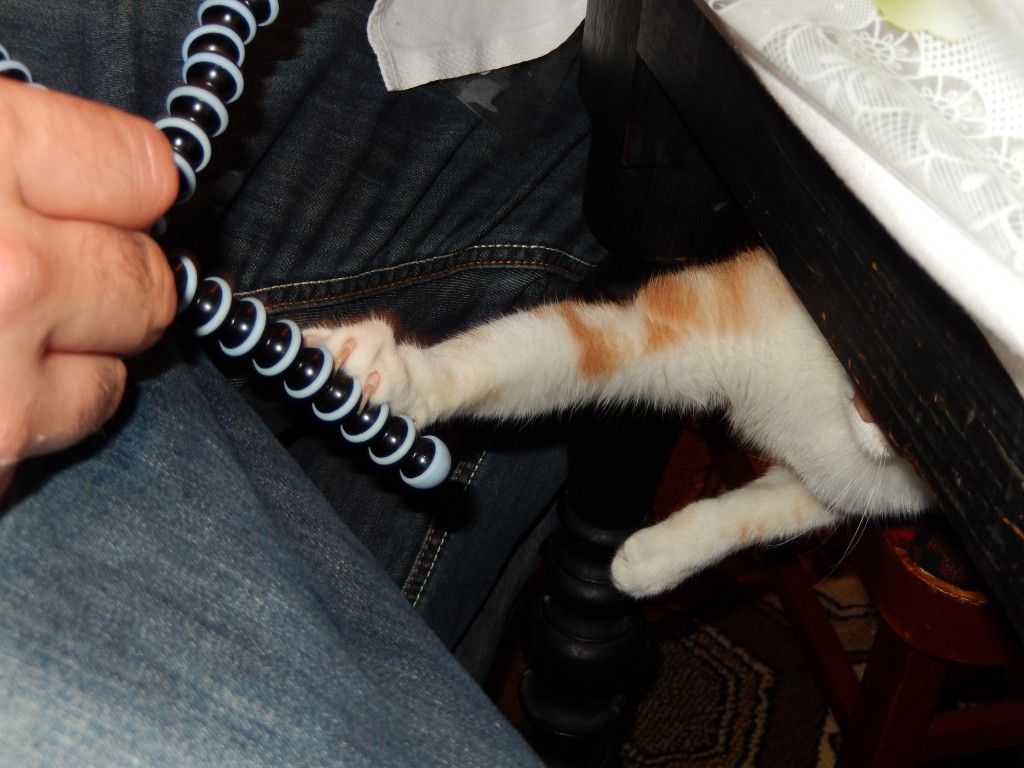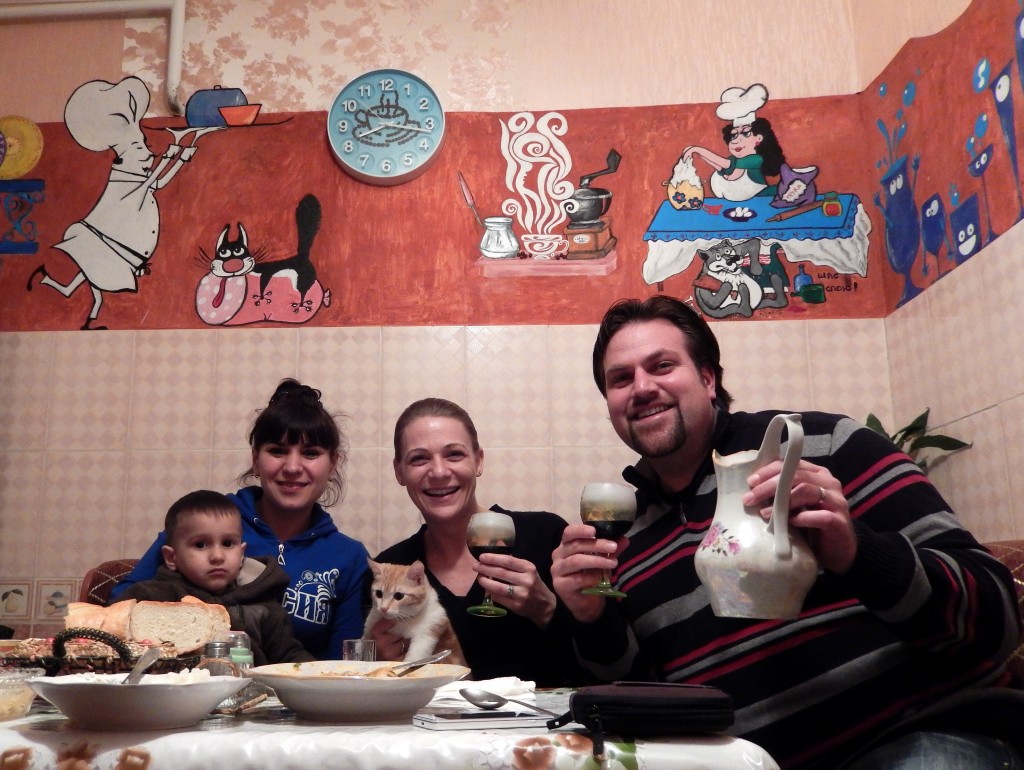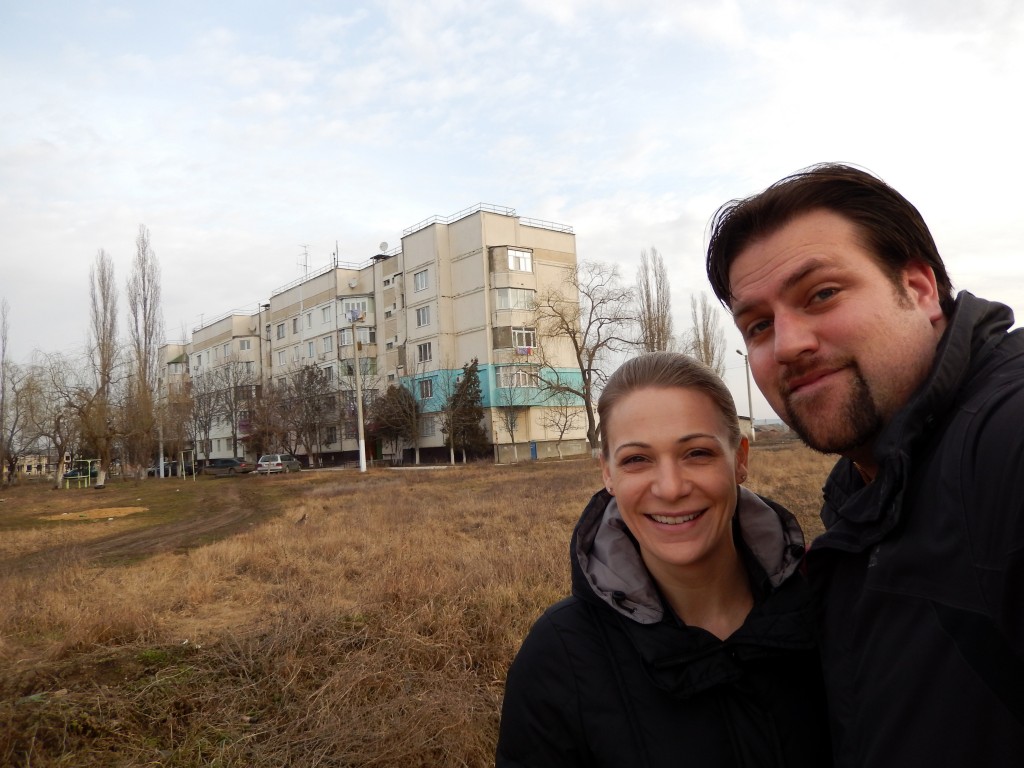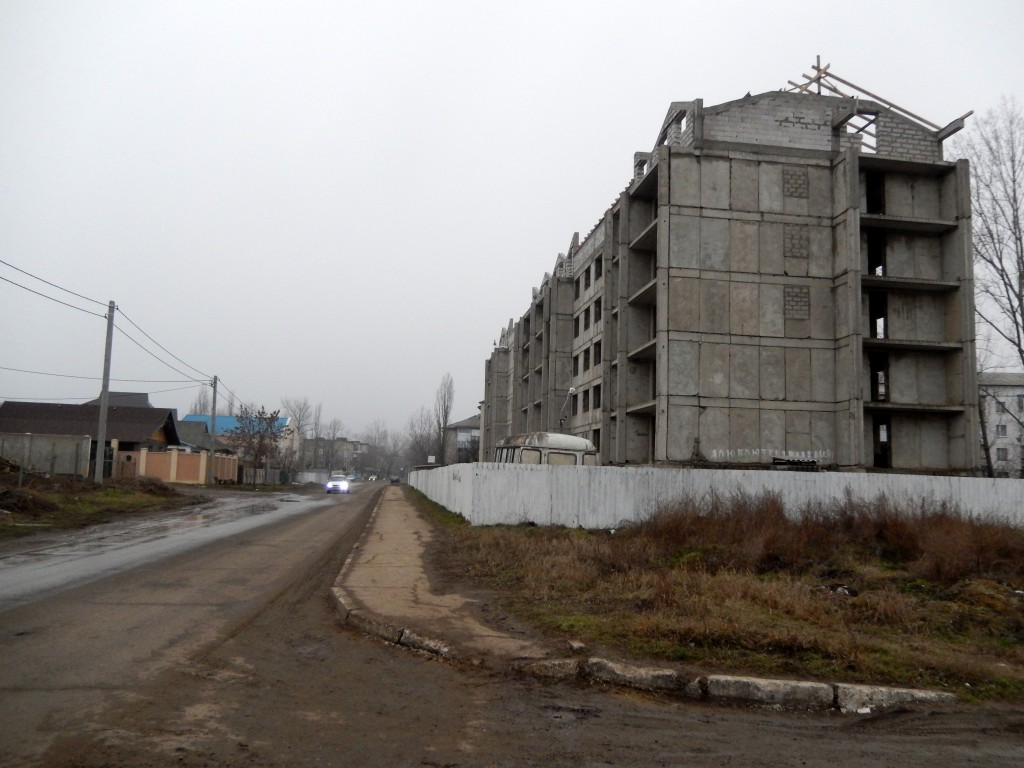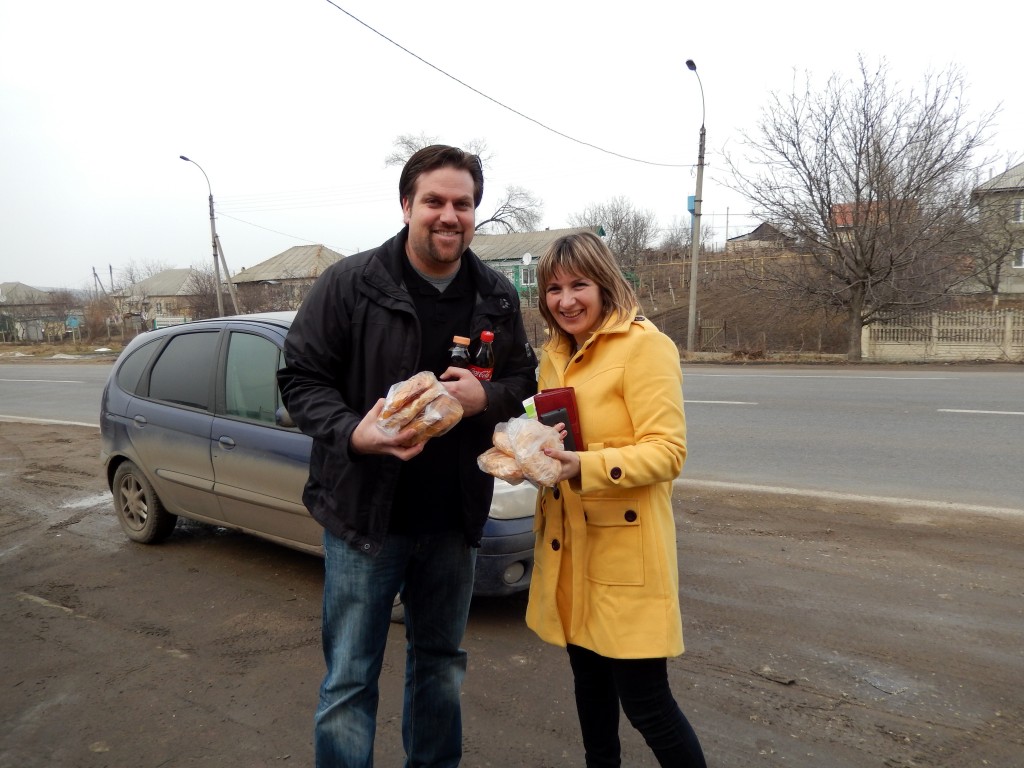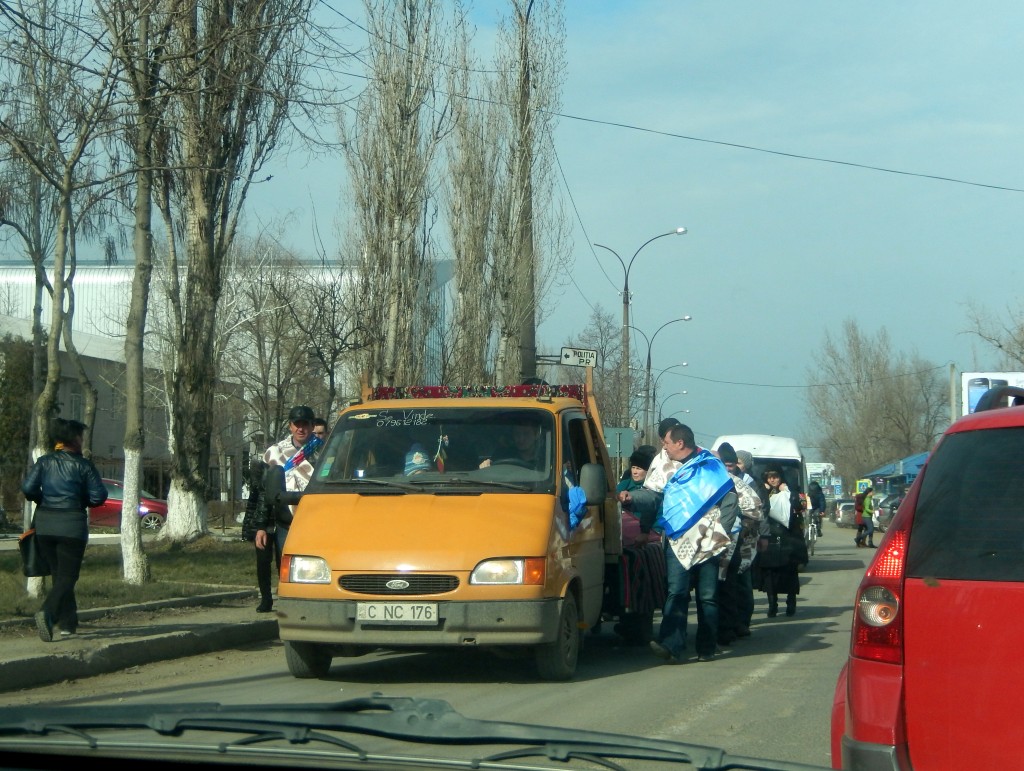Prior to arrival, I was pretty nervous about our decision to stay with a host family in Moldova. Our information packet contained descriptions of homes without hot water or even indoor plumbing. Direct quote: “external toilets – a hole in the ground in a hut.” I was imagining us taking cold showers (amongst other things) from buckets in a tiny shed out back…in February. Buuuuurrr! Granted, we saw plenty of those types of homes, but were really lucky to stay with the Cioban family in Căuşeni.
This “home stay” really made our experience in Moldova! Despite language issues and living with strangers for a week, it was honestly a lot of fun! It was a good reminder about being open-minded, having a sense of humor, and having at least one bite of everything that is put on the plate in front of you!
The Cioban family actually comes from Russia, hopes to return to Russia someday, and speaks Russian at home. So, we felt like we learned just as much about Russia as we did about Moldova!
Olga– Olga is the mother and only English speaker in the family. I could totally imagine how mentally exhausted she was after trying to converse with us each day, but she did a good job and referenced her trusty dictionary when needed! Every night at dinner we were offered plenty of homemade wine and heaping plates of food. One night she told us about the homemade alcohol her family makes out of walnuts. The Russian word translated to “illicit spirits” in the dictionary. Thankfully she was “fresh out” because I was a little skeptical of what would happen after a night of Russian moonshine! She never ate with us, but sat and chatted and laughed with us, then sent us to our room with full glasses of wine.
Kyriel– Kyriel is Olga’s 2-year old son. She also has a 7-year old named Dan, but he kept to himself most of the time. Kyriel, however, was quite the character. He was allowed to drink Mom’s homemade wine out of a shot glass and often wanted to clink glasses before drinking. (Mom translated these requests of course!) He referred to us in Russian as “aunt” and “uncle” and we spent most of our evenings laughing, playing, and responding with “da” (Russian for ‘yes’) to everything he said.
Sonja– Sonja the cat. The first day I felt sorry for Sonja. I watched her get hit and kicked by Kyriel, “pet” with a ruler, and shoved into a drawer full of Legos, amongst other tortures. Then I spent a few more nights with Sonja. She instigated any poor treatment she received. I guess you could call it “playing”, but she drew blood from both Joe and I! Even as I type this I am nursing a one-inch slice in my ring finger that is about as wide as a cat claw.
The Grandma – I think Grandma got a big kick out of us. Every time we tried to use a Russian word, she would just smile and laugh! Three years ago, I would have been offended by this. Nowadays I’m pretty used to being laughed at when I utter something in a foreign tongue. I guess it just comes with the territory.
The Grandpa – Grandpa doesn’t speak English and lives in Moscow, but we are all best friends now! In fact, we even had a Skype date and tentative plans to meet up in Moscow. On Skype, I pointed to his daughter and then rubbed my stomach and showed how big it had gotten from all the good food, and then he laughed and stood up and did the same with a thumbs up. See…no common language needed! At the end of our Skype session, he held up his glass and Coke bottle filled with “Moldovan Coke” (aka homemade wine). Little did I know we would be sent back to Germany with a similar bottle filled with three times as much “Moldovan Coke”. Nostrovia!

